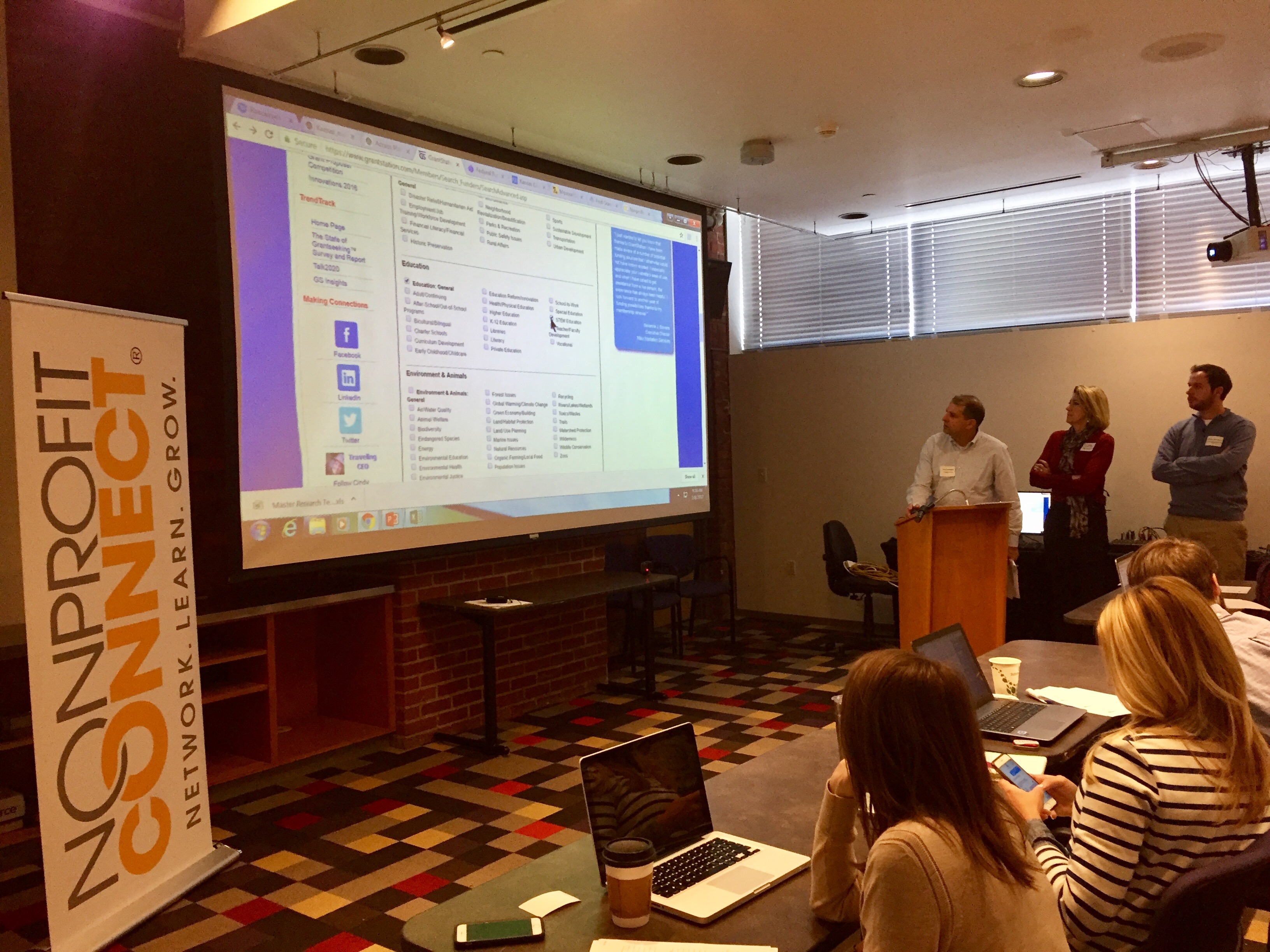Researching Grant Opportunities

Yesterday over 40 nonprofit professionals joined us for a workshop on Researching Grant Opportunities, lead by Julie Assel of Assel Consulting. Check out these key takeaways from the program to enhance your grant research!
Guest Post by Julie Assel of Assel Consulting
1. Be organized before you even start researching grants. Know the following minimum information before you even start:
- Geographic location (what state, metropolitan area, county, and city)
- Target population (what are the characteristics of the clients you serve: homeless, at-risk, youth, vets, women, minorities, etc.)
- Interest Area (major general areas like Arts, Education, Environment and Animals, Health, Human Services, International, Public Benefit, Religion, Science) as well as more detailed interest areas like modern dance within the arts, young investigator research within higher education, etc.)
- Type of Support: operating support, program support, capital funds, capacity building, challenge grants, etc.
- Identify 3-5 organizations with the greatest similarity to you in activities, geographic area, and/or population. (i.e. the minimum information from the bullets above)
2. Allow yourself a set amount of time to continuously research prospects.
- Try 30 minutes first thing in the morning.
- Or try 15 minutes at the end of the day.
- During slow seasons like summer or December
- Research when you are experiencing writing’s block or waiting for information from a program director.
3. Use an intern, VISTA, or volunteer to help pull data into your master research template. This spreadsheet will have worksheets for foundation and federal grants as well as a research history of what you have gotten done so far.
Nonprofit Connect members receive access to GrantStation and the Foundation Directory, both searchable databases of grantmakers and funders. Log in to get started!

